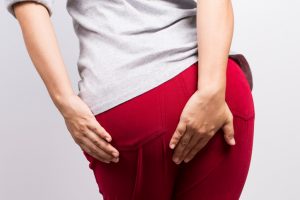
Stool is the combination of waste, undigested food, bacteria, mucus, and dead cells.
Fecal incontinence can be an embarrassing condition, and patients may feel ashamed and have a lower quality of life because of it. The first step is to talk to your doctor if you have been experiencing fecal incontinence, as there could be a serious underlying problem that requires medical attention. You do not have to live with fecal incontinence, but if you don’t seek help you can allow the condition to take over your life.
Causes of fecal incontinence
There are numerous causes of fecal incontinence. The most common include:
- Muscle damage: injury to the ring muscles at the end of the rectum
- Nerve damage: injury to the nerves that sense stool in the rectum
- Constipation
- Diarrhea
- Loss of storage capacity in the rectum: If the rectum cannot stretch due to surgery or inflammatory bowel disease
- Surgery
- Rectal prolapse: the rectum drops down into the anus
- Rectocele: the rectum protrudes through the vagina
Risk factors for fecal incontinence include being middle-aged or older, being female, having nerve damage, having dementia, and having a physical disability.
Symptoms of fecal incontinence
- Inability to resist the urge to defecate
- Inability to make it to the toilet in time
- Being unaware that you have passed stool
- Diarrhea
- Constipation
- Gas and bloating
You should talk to your doctor after experiencing any symptoms related to fecal incontinence. There are treatments available, and the sooner you address the problem the sooner you can get your life back.
Fecal incontinence treatment
Treatment for fecal incontinence involves lifestyle and dietary changes to relieve diarrhea or constipation, exercise programs to strengthen the muscles that control the bowel, medications to control diarrhea or constipation, and surgery.
Fecal incontinence products available include anal plugs and disposable pads. Your doctor will also want to treat the underlying condition that is causing fecal incontinence.